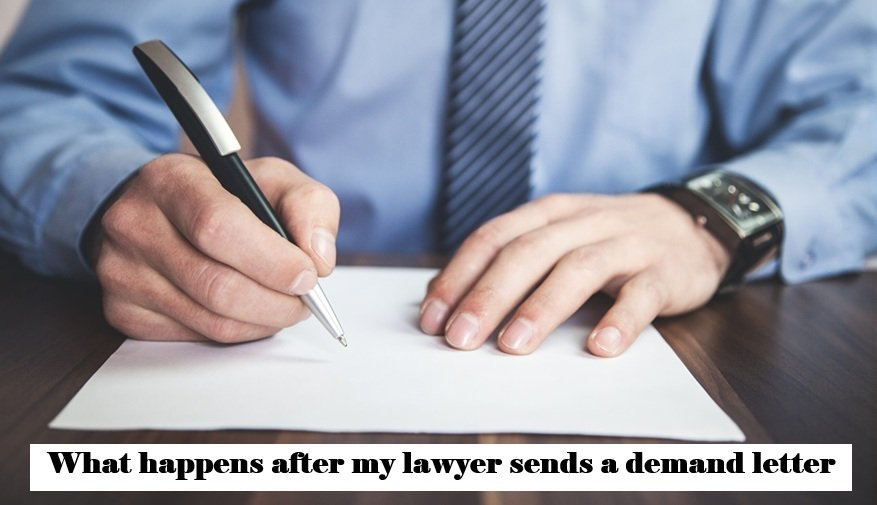When you are involved in a damage case, insurance dispute, contract problem, or any felony struggle, one of the first essential steps your legal professional takes is sending a demand letter. This record outlines your position, states the damages or repayment you’re looking for, and offers the opposing party the possibility to settle earlier than litigation.
But many human beings ask the same essential question: What happens after my legal professional sends a call for a letter?
Understanding this timeline will let you control expectancies, reduce anxiety, and recognise precisely where your case stands.
What Is a Demand Letter and Why Does It Matter
A demand letter is a formal verbal exchange from your legal professional to the alternative party or their insurance business. It consists of:
- An announcement of records
- Explanation of legal responsibility
- Documentation of damages
- A particular demand for reimbursement
- An agreement deadline
This letter is strategically drafted to encourage resolution without having to visit the court docket. It sets the tone for negotiation and shows the opposing side that you’re critical about pursuing your claim.
Step 1 – The Opposing Party Receives and Reviews the Demand Letter
Once the letter is dispatched, step one is simple: the alternative party gets it. Depending on the sort of case, it may be:
- An coverage adjuster
- A business, or a man, or a woman
- A company’s legal department
- An attorney representing the opposing side
Generally, they will assess your claims, study evidence, and determine their subsequent circulate. This manner can take anywhere from a few days to several weeks, depending on complexity.
Step 2 – The Insurer or Opposing Party Begins an Investigation
After receiving the call for a letter, the opposing birthday celebration will typically behaviour their own research. This may consist of:
- Reviewing police reviews
- Evaluating clinical information
- Examining repair estimates
- Consulting experts
- Interviewing witnesses
Insurance corporations particularly take their time, due to the fact they need to decrease payout amounts. It’s normal for them to be searching for additional documentation or rationalisation from your legal professional.
Step 3 – You Receive a Response (or Sometimes No Response)
1. Acceptance
This is the great-case scenario. The opposing birthday celebration agrees to your needs, or offers a settlement close to what your lawyer requested. This frequently ends in a swift resolution.
2. Counteroffer
Much extra not unusual is a decrease counteroffer. Insurance organisations typically begin with a low variety to test your willingness to barter.
3. Request for More Information
Sometimes they ask for more clinical facts, evidence of lost wages, or extra documentation earlier than determining.
4. No Response
If the opposing birthday celebration ignores the letter, your attorney might also pursue—or prepare for litigation.
Step 4 – Settlement Negotiations Begin
Once a counteroffer is made, your attorney starts negotiating. This part can take from some days to numerous months, depending on:
- The complexity of accidents or damages
- The coverage organisation’s rules
- The energy of your documentation
- Whether legal responsibility is disputed
Your lawyer uses proof, legal arguments, and negotiation competencies to push the settlement variety upward. This level frequently determines whether the case resolves peacefully or escalates to a lawsuit.
Step 5 – Mediation or Alternative Dispute Resolution
If negotiations stall, your attorney might also propose mediation. This is a voluntary process where a neutral 0.33 birthday party allows each aspect to discover a middle ground.
Mediation advantages include:
It’s not an unusual step before filing a lawsuit—specifically in non-public damage, commercial enterprise disputes, and employment cases.
- Faster decision
- Lower prison charges
- More control over final results
Step 6 – If the Case Doesn’t Settle, a Lawsuit May Be Filed
If the opposing birthday celebration refuses to provide a fair agreement, the subsequent step is to submit a lawsuit. This does not mean the case will grow to trial—most proceedings nevertheless settle before achieving the courtroom.
Filing a lawsuit triggers:
- Discovery (exchange of evidence)
- Depositions
- Expert witness involvement
- Court hearings
- Additional negotiations
A demand letter is designed to keep away from litigation, but sometimes it’s important to push the opposing side into extreme negotiation.
Step 7 – Settlement Before Trial
A great percentage of instances settle after litigation begins, however, earlier than trial. This occurs because:
- The opposing celebration sees your lawyer as extreme
- Discover famous strong evidence
- Both aspects need to keep away from trial expenses
- Court cut-off dates create pressure
Your lawyer will continue negotiating at some point in the system.
Step 8 – Going to Trial (If Absolutely Necessary)
Trials are rare but do occur. If your case goes to trial, a decide or jury will decide the final results. Your legal professional will present:
- Evidence of damages
- Proof of legal responsibility
- Witness testimony
- Expert evaluations
Trials can take months or maybe years; however, they’ll result in a higher award than a settlement.
How Long Does It Take to Get a Response After a Demand Letter?
While time varies, traditional response home windows include:
- Insurance organisations: 30–45 days
- Businesses/corporations: 2–6 weeks
- Individuals: everywhere from 1 to 8 weeks
Your legal professional may set a particular cut-off date inside the letter (regularly 15–30 days), however now not all events respond on time.
Factors That Affect What Happens After a Demand Letter
Several matters have an impact on how fast and easily matters progress:
1. Case Complexity
Serious injury or excessive-cost claims take longer.
2. Strength of Evidence
Clear legal responsibility leads to quicker settlements.
3. Insurance Company Tactics
Some organisations intentionally postpone responses.
4. Your Attorney’s Approach
Experienced attorneys recognise a way to push for movement.
Tips to Improve the Outcome After a Demand Letter
- Keep all medical appointments
- Save receipts and invoices
- Avoid discussing your case publicly
- Trust your attorney’s verbal exchange method
- Respond speedily to lawyer requests
Good documentation strengthens negotiation power.
FAQ: About What Happens After a Demand Letter
1. How long does it take for a reaction after a demand letter?
Most insurance businesses reply within 30 days, but some take longer. Your legal professional may also comply with or set a corporation deadline.
2. What if the coverage business enterprise denies my declare?
Your lawyer may additionally appeal, negotiate similarly, or file a lawsuit.
3. Do all call for letters of cause settlement?
Not all, however, many do. Demand letters regularly open the door to negotiation that resolves the case without going to court.
4. Can a call for a letter not be noted?
Yes, but ignoring it may push the case toward litigation, which may also strain the alternative party into negotiating later.
5. Is a call for a letter legally binding?
No, however, it establishes your official function and serves as effective proof later.
6. Does sending a call for a letter imply the case will visit the courtroom?
Not always. Many cases settle shortly after the letter or in the course of negotiation.
Conclusion
So, what happens after your legal professional sends a demand letter?
You can count on a sequence of activities that can encompass investigation, negotiation, counteroffers, mediation, and probably filing a lawsuit. This procedure is designed to encourage agreement without a court docket; however also prepares you for litigation if wanted.
Read More:-








